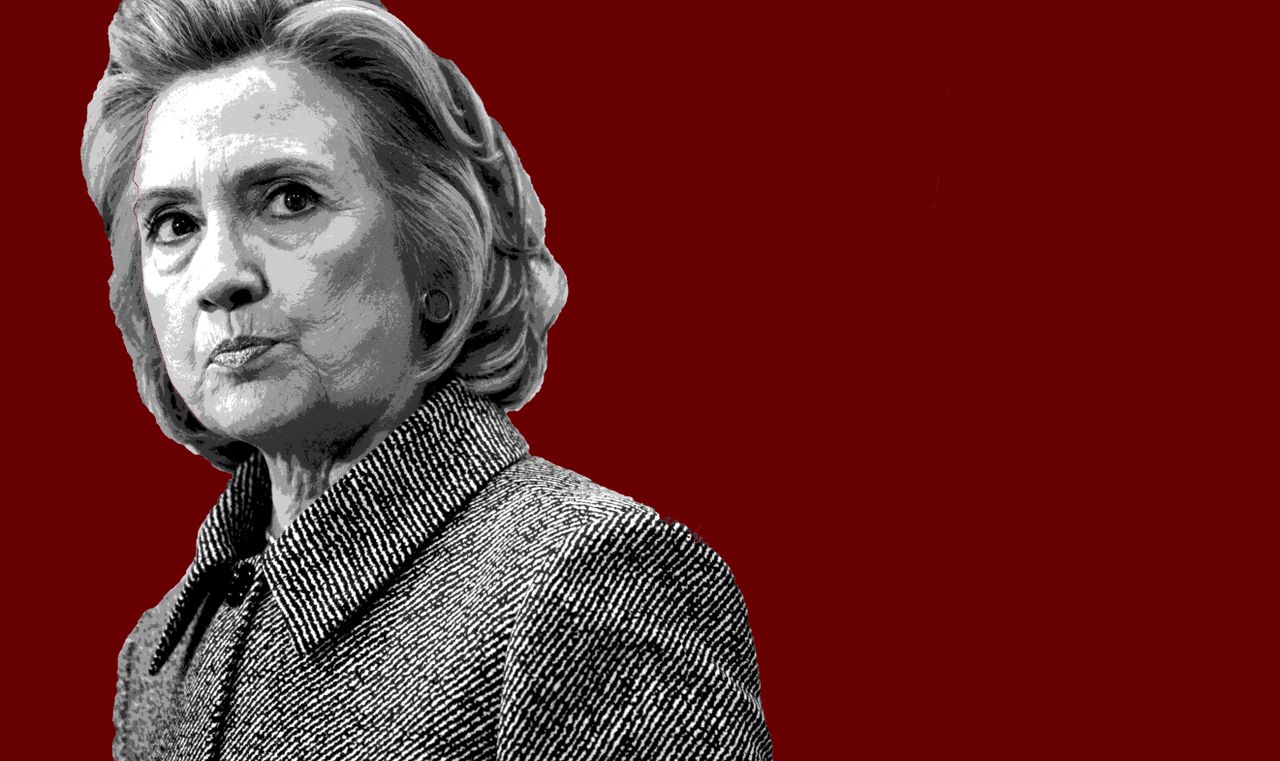Why I'm suing the State Department over Hillary Clinton's email scandal
The State Department will let you keep classified documents — they'll even install a safe for you to protect them. But only if your client's name is Clinton.


As secretary of state, Hillary Clinton clearly didn't want the public to have access to her email messages. And that's the great irony of the email scandal in which she now finds herself: By hosting her email on a private server, she's allowed everyone to read her letters.
Under massive pressure, Clinton handed over more than 50,000 pages of emails to the State Department late last year, and in the months since, many have oozed out into the light, including my personal favorite: a letter from Clinton-family delovoi Lanny Davis, written with such fawning servility that one might have expected it to be signed by a Nigerian prince in need of your bank account number.
I hate to email you too much and to ask you for any favors. I feel as if I am taking advantage of a great privilege that you allow me to send you a personal email every so often. But this is a favor that I fully understand for 100 reasons might not be appropriate or comfortable for you to say yes to. [Lanny Davis]
But let's be serious: It's a near-certainty that foreign intelligence agencies thoroughly penetrated Clinton's email. For all we know, the average private in the People's Liberation Army now has the un-redacted letters from the head of U.S. foreign affairs — letters written during the critical phases of wars in both Iraq and Afghanistan, and during which U.S. spies and soldiers were fighting clandestine wars in virtually every hostile nation on the planet. Understand that even if she didn't outright type grid coordinates for drone bombing targets, foreign intelligence agencies exist specifically to piece together disparate and innocuous bits of information to form a reasonably accurate tapestry of their targets.
Subscribe to The Week
Escape your echo chamber. Get the facts behind the news, plus analysis from multiple perspectives.

Sign up for The Week's Free Newsletters
From our morning news briefing to a weekly Good News Newsletter, get the best of The Week delivered directly to your inbox.
From our morning news briefing to a weekly Good News Newsletter, get the best of The Week delivered directly to your inbox.
The timeline of the Clinton email scandal itself reads like an indictment, but three dates bear note: In May 2015, the State Department discovered classified material in Clinton's email. In June, the inspector general of the intelligence community confirmed to Congress that classified material had indeed been discovered, and that copies of said correspondence were being stored on flash drives at the office of David Kendall, Clinton's lawyer. On August 5, the State Department confirmed publicly that it had installed a safe at Kendall's office to store this flash drive brimming with American secrets. Kendall relinquished the now-radioactive drives the next day.
The circumstances surrounding the storage of classified material at Kendall's office deserve scrutiny. Had any other private lawyer — even one with a security clearance — told a federal agency he or she planned to hold on to classified records, he or she would have been referred immediately to the FBI for investigation, and had his or her clearances summarily revoked.
In 2010, this happened to Kel McClanahan, a lawyer and the executive director of National Security Counselors, a public interest law firm. During the course of his work, he inadvertently received classified information. He notified the Justice Department of this, and he was immediately referred to the FBI, who investigated him for over a year. He was threatened with search warrants if he did not voluntarily allow them to search through his records, in a kind of dragnet to see if he had any other classified information. (He did not.) Mark Zaid, another D.C.-based national security attorney, received similar treatment after being accused of possessing classified material. (The information had been given as unclassified, and then the government changed its mind.) Zaid and his colleagues were threatened with prosecution and the revocation of their security clearances. At the time, McClanahan, Zaid, and others in the national security legal community took such treatment as par for the course. It's now clear that if they had had Hillary Clinton as a client, not only would the government have left them alone, but would have sent over a maintenance crew to install safes to help store sensitive documents.
Clinton's email server is bad. Even Lanny Davis, who was once "inspired, of course, by my friend the great former Junior Senator from New York, Hillary Clinton, whom my friend Lindsey Graham once told me was the nicest and most effective person in the U.S. Senate," would probably concede that installing a secret mail server in your bathroom to bypass open records laws is unwise. But it is the actions of the State Department that require adversarial attention.
If it is now policy to allow private lawyers to hoard potentially classified information, the public is entitled to know the authority by which such policies are maintained, and who is permitted such generous treatment. The public is owed an explanation for blind eyes turned, in the case of Kendall and Clinton, to the obvious dangers to national security. Did no one at State object to this? And if so, who overruled those objections?
To find out, Kel McClanahan and I have filed suit against the U.S. State Department. Our lawsuit is the result of a Freedom of Information Act request for records concerning State's decision-making in this matter. The State Department first acknowledged our request, and agreed to expedite its processing. Then they ended all correspondence. Americans have the legal right to these records, and our goal is to compel State to hand them over.
This goes beyond politics. If the State Department wants to pick and choose which private citizens get to store classified material at their homes or offices, the public needs an explanation of how such decisions are made, and why. Once we know that, we might know just how poorly our secrets are really being kept.
Sign up for Today's Best Articles in your inbox
A free daily email with the biggest news stories of the day – and the best features from TheWeek.com
David W. Brown is coauthor of Deep State (John Wiley & Sons, 2013) and The Command (Wiley, 2012). He is a regular contributor to TheWeek.com, Vox, The Atlantic, and mental_floss. He can be found online here.
-
 5 inflammatory cartoons on the L.A. wildfires
5 inflammatory cartoons on the L.A. wildfiresCartoons Artists take on climate change denial, the blame game, and more
By The Week US Published
-
 The problems with the current social care system
The problems with the current social care systemThe Explainer The question of how to pay for adult social care is perhaps the greatest unresolved policy issue of our time
By The Week UK Published
-
 Austria's new government: poised to join Putin's gang
Austria's new government: poised to join Putin's gangTalking Point Opening for far-right Freedom Party would be a step towards 'the Putinisation of central Europe'
By The Week UK Published
-
 US election: who the billionaires are backing
US election: who the billionaires are backingThe Explainer More have endorsed Kamala Harris than Donald Trump, but among the 'ultra-rich' the split is more even
By Harriet Marsden, The Week UK Published
-
 US election: where things stand with one week to go
US election: where things stand with one week to goThe Explainer Harris' lead in the polls has been narrowing in Trump's favour, but her campaign remains 'cautiously optimistic'
By Harriet Marsden, The Week UK Published
-
 Is Trump okay?
Is Trump okay?Today's Big Question Former president's mental fitness and alleged cognitive decline firmly back in the spotlight after 'bizarre' town hall event
By Harriet Marsden, The Week UK Published
-
 The life and times of Kamala Harris
The life and times of Kamala HarrisThe Explainer The vice-president is narrowly leading the race to become the next US president. How did she get to where she is now?
By The Week UK Published
-
 Will 'weirdly civil' VP debate move dial in US election?
Will 'weirdly civil' VP debate move dial in US election?Today's Big Question 'Diametrically opposed' candidates showed 'a lot of commonality' on some issues, but offered competing visions for America's future and democracy
By Harriet Marsden, The Week UK Published
-
 1 of 6 'Trump Train' drivers liable in Biden bus blockade
1 of 6 'Trump Train' drivers liable in Biden bus blockadeSpeed Read Only one of the accused was found liable in the case concerning the deliberate slowing of a 2020 Biden campaign bus
By Peter Weber, The Week US Published
-
 How could J.D. Vance impact the special relationship?
How could J.D. Vance impact the special relationship?Today's Big Question Trump's hawkish pick for VP said UK is the first 'truly Islamist country' with a nuclear weapon
By Harriet Marsden, The Week UK Published
-
 Biden, Trump urge calm after assassination attempt
Biden, Trump urge calm after assassination attemptSpeed Reads A 20-year-old gunman grazed Trump's ear and fatally shot a rally attendee on Saturday
By Peter Weber, The Week US Published